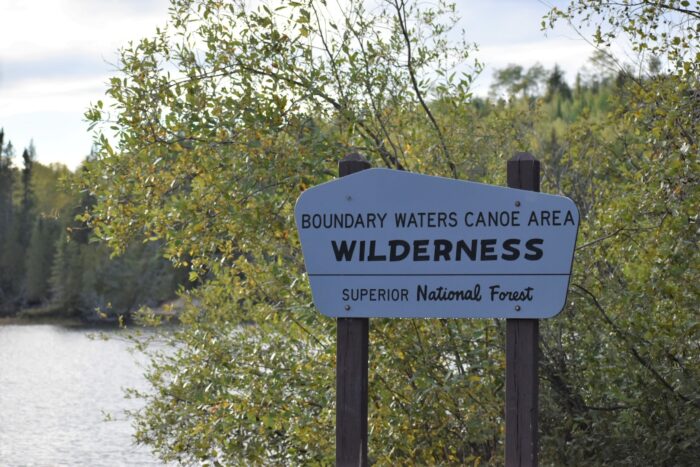Last minute social media post creates week of whiplash for BWCAW mining ban
In a post on X last Tuesday, Agriculture Secretary Brooke Rollins announced a plan to cancel the mineral withdrawal from the Boundary Waters Canoe Area Wilderness. The social media post came less than a day after language to cancel the withdrawal was removed from the One Big Beautiful Bill, which currently sits with the U.S. Senate.
U.S. Representative Pete Stauber has been a leading advocate for canceling the mineral withdrawals, which were implemented by Secretary Deb Haaland under the Biden Administration in 2023. Haaland’s public land order banned mining on 225,504 acres of Superior National Forest land in the watershed of the BWCAW and upstream of the Wilderness. It also canceled the leases of Twin Metals, a Minnesota subsidiary of Chilean mining conglomerate Antofagasta.
The One Big Beautiful Bill Act originally contained language similar to Stauber’s Superior National Forest Restoration Act, which he reintroduced last February. However, the Senate parliamentarian, a non-partisan position that interprets and applies Senate rules, determined the language was beyond the scope of the budgetary bill.
“It was likely clear to a lot of folks who were in the mix on these conversations that the actual budgetary impact of this legislation was pretty darn small by comparison with other provisions,” Executive Director of Save the Boundary Waters, Ingrid Lyons told WTIP. “So it was pretty clear from the jump that this wasn’t going to be appropriate for this process.”
Less than 24 hours later, Rollins posted her plan to cancel the withdrawals, working with the current Secretary of the Interior, Doug Burgum.
“After careful review, including extensive public input, the US Forest Service has enough information to know the withdrawal was never needed,” Rollins said in her post. She did not reference what public input she was referring to.
The following day, Secretary Burgum appeared before the House Committee on Natural Resources. During the meeting, Rep. Stauber confirmed that he met with Rollins prior to her post and asked the Secretary to commit to reversing the ban and returning leases to the mining companies.
“Yes,” Burgum said. “We’ve got to get back into mining for national security reasons.”
The 2023 Public Land Order was the culmination of an effort that began with the Obama Administration in 2016, following two years of study by the federal government to determine whether a withdrawal was appropriate. After that, A total of 454 days were made available for public comment. Several listening sessions were held, with over 650,000 comments submitted by the American people.
It is unclear if Secretary Burgum will take a similar approach.
“This would be an unlawful revival of these mineral leases,” Lyons said. “So I think that there’s going to be a lot of challenges across the board to this project. I think you’ll find that Minnesotans will be outraged. Americans will be outraged. So it’s certainly far from done. Even if the Secretary signs a piece of paper, we stand completely poised and ready to challenge whatever this next chapter is in this.”
WTIP spoke with Ingrid Lyons, Executive Director of Save the Boundary Waters, about the latest developments surrounding the Boundary Waters mining ban. You can find the audio of that conversation below.














